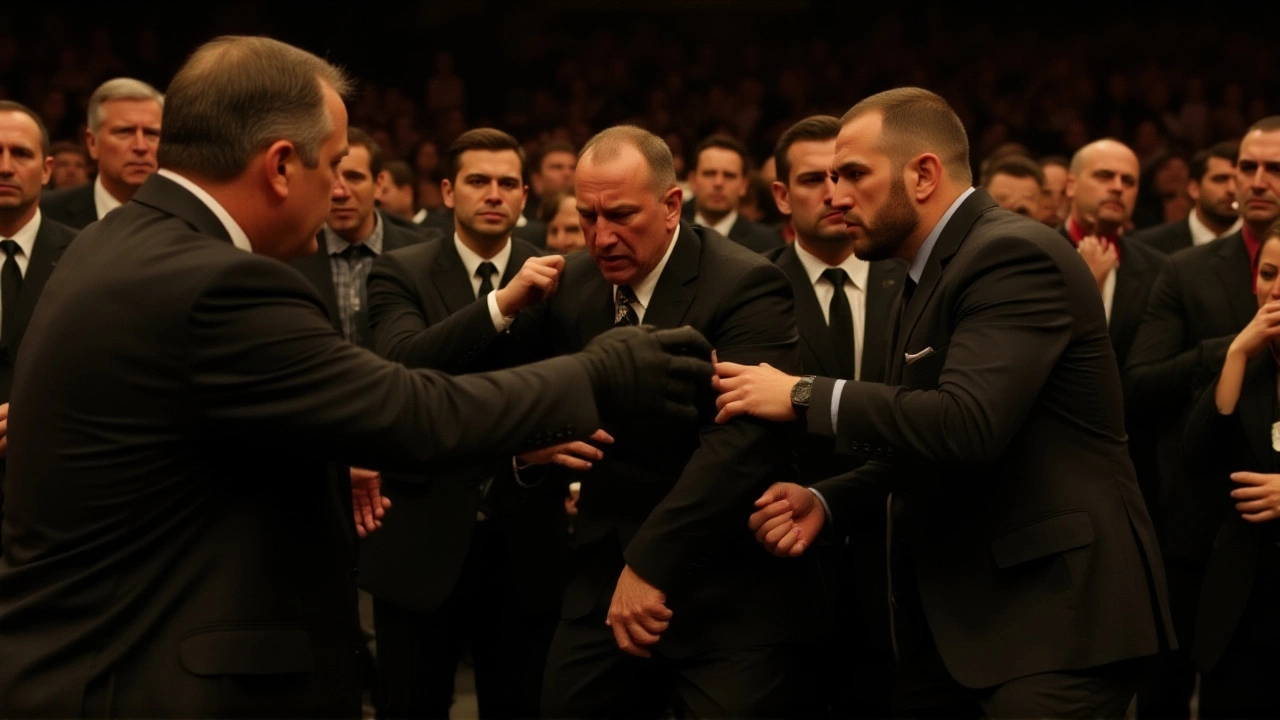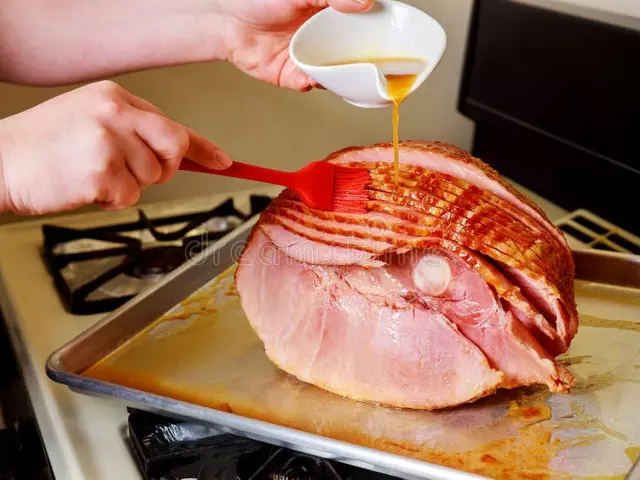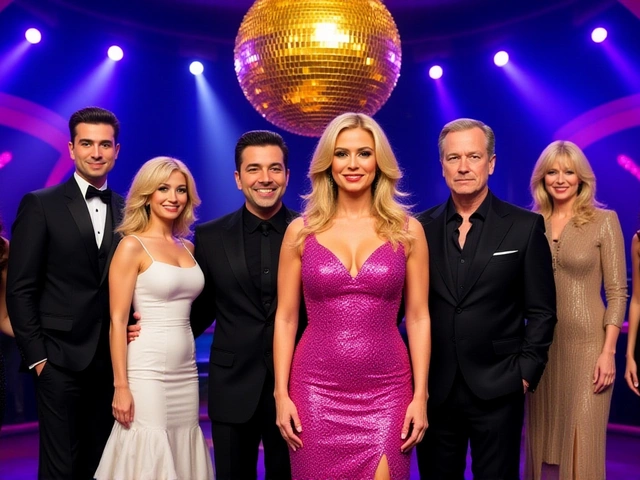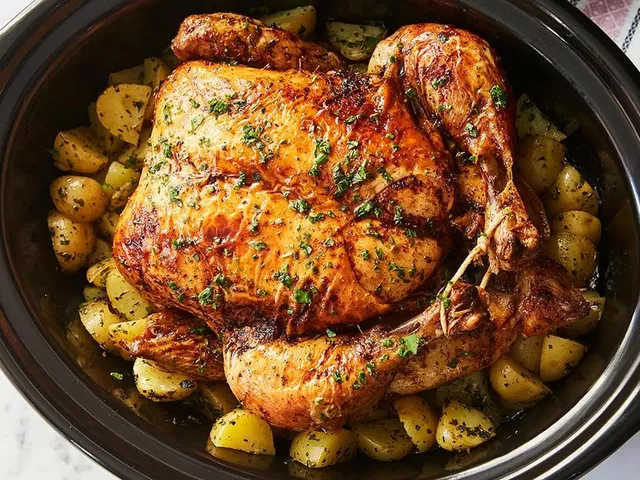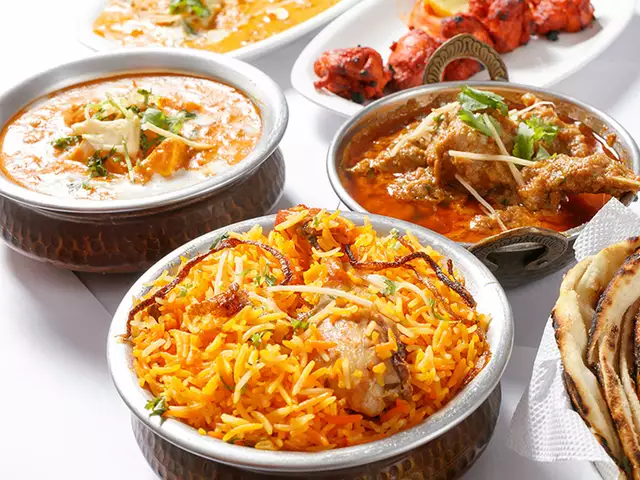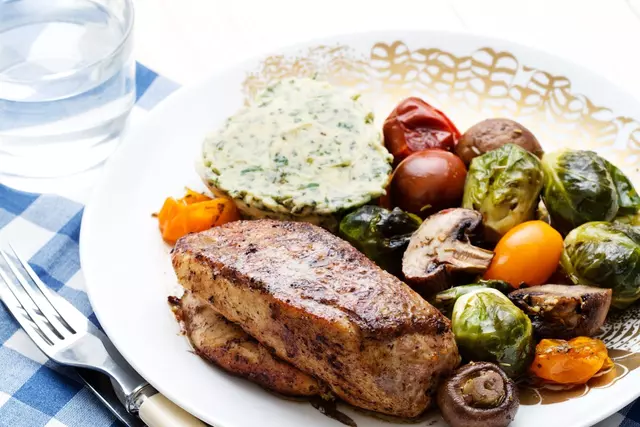When Dillon Danis stormed cageside during UFC 322Las Vegas on November 15, 2025, he didn’t just cross a line—he erased it. By the next day, Dana White, president of the Ultimate Fighting Championship (UFC), had issued a permanent ban: no events, no broadcasts, no backstage access, no future. It wasn’t a suspension. It was a death sentence for Danis’s UFC career. And according to TMZ and Bloody Elbow, the fallout didn’t end there. Islam Makhachev, the UFC lightweight champion and face of Team Khabib, publicly called for punishment even harsher than White’s ban. This wasn’t just a brawl. It was the explosion of years of tension—and now, the UFC is rewriting its rules on conduct.
How It All Went Down
The fight card ended. The crowd was still buzzing. Then, in the seconds after the final bell, Danis—already a lightning rod for controversy—lunged across the cage at members of Team Khabib. Witnesses described it as sudden, aggressive, and unprovoked in the moment, though the roots run deep. Danis had spent years mocking Khabib Nurmagomedov’s legacy, mocking Makhachev’s training methods, and openly questioning the discipline of the Dagestani camp. On the night of UFC 322, that simmering hostility boiled over. Security scrambled. Fighters pulled back. And within minutes, Dana White was in a back room with his legal team, making a decision he’d never made before: lifetime ban.
Why This Ban Is Unprecedented
White has suspended fighters before—for failed drug tests, for public outbursts, for breaking contracts. But never, in over two decades of running the UFC, has he banned someone forever for an incident outside the octagon. Danis wasn’t even competing that night. He was a commentator, a guest, a provocateur. Yet White didn’t hesitate. The message was clear: the UFC won’t tolerate chaos, even from outsiders. And this wasn’t just about one man’s temper. It was about protecting the brand. With over $1.1 billion in annual revenue and global TV deals stretching from Abu Dhabi to Sydney, the UFC can’t afford to be seen as a circus. Danis’s actions, White reportedly said, “made us look like a third-rate street fight.”
Islam Makhachev’s Call for More
While White’s ban ended Danis’s UFC career, Makhachev didn’t think it went far enough. According to Bloody Elbow, the Russian champion, who trains at the American Kickboxing Academy in San Jose, told associates that Danis should face “legal consequences” and “be barred from any MMA-related activity.” That’s significant. Makhachev isn’t just speaking as a fighter—he’s speaking as the face of a dynasty. His team, built by Khabib’s legacy, has been the target of Danis’s taunts for years. Now, with Danis banned from UFC property, Makhachev’s demand suggests the conflict is moving beyond the cage. Could this lead to civil lawsuits? A restraining order? A formal complaint to athletic commissions? The silence from the UFC on those fronts is deafening.
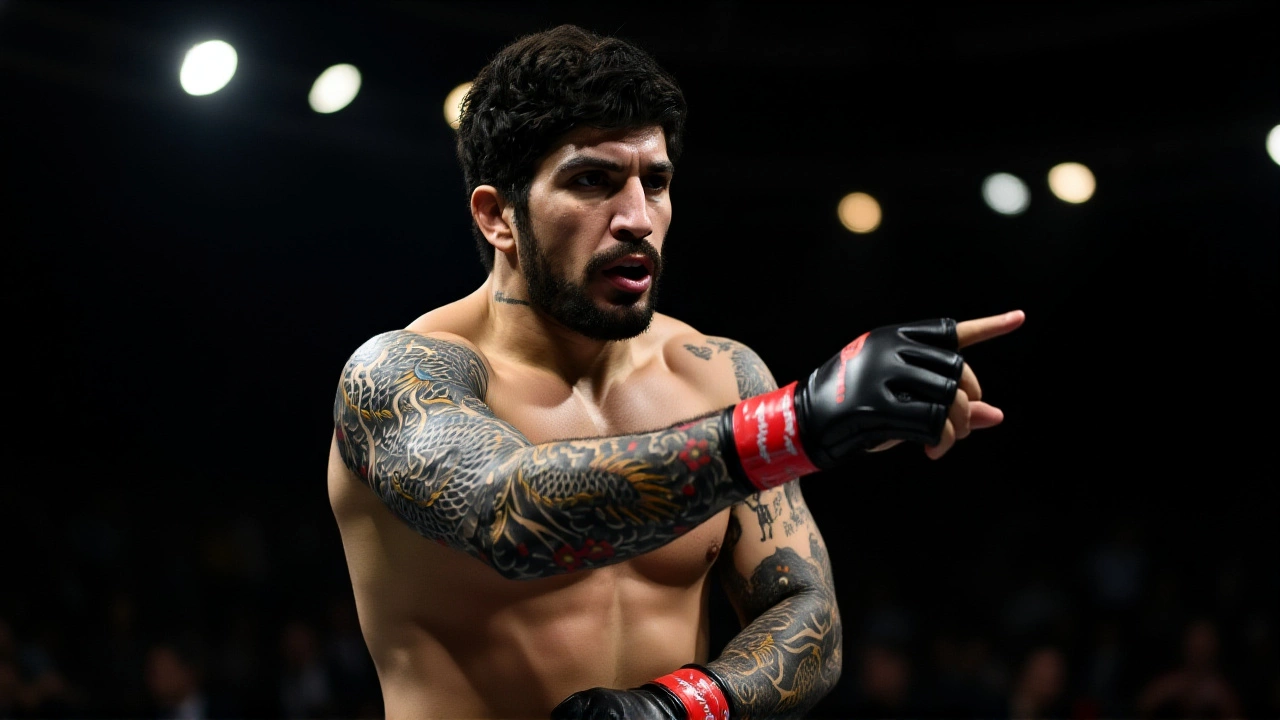
The Ripple Effect Across MMA
Other fighters are watching closely. Many of them privately agree with White’s decision. “If you can’t control yourself, you don’t belong here,” said one unnamed middleweight on condition of anonymity. But others worry. Danis was a polarizing figure, yes—but he was also a draw. His social media following exceeds 4 million. His fights on the independent circuit drew crowds in the thousands. Now, he’s untouchable by the biggest promotion in the sport. What does that mean for other personalities? For commentators? For influencers who cross the line? The UFC has drawn a red line—and it’s not just for fighters anymore.
What’s Next for Dillon Danis?
Outside the UFC, Danis still has options. He’s a trained boxer with a 3-0 pro record. He owns 305 Fitness in Miami, a high-end training facility that’s grown into a brand. He’s also been linked to potential appearances on boxing pay-per-views and even reality TV. But the stigma is real. Sponsorships will vanish. Promoters will hesitate. And with the UFC’s influence over media, broadcast networks, and even streaming platforms, Danis’s access to mainstream MMA audiences is effectively gone. The financial hit? He’s forfeited potential six-figure appearance fees, endorsement deals with brands like Reebok and Monster Energy, and future pay-per-view cuts. Estimates suggest he’s lost over $2.3 million in projected earnings over the next three years alone.
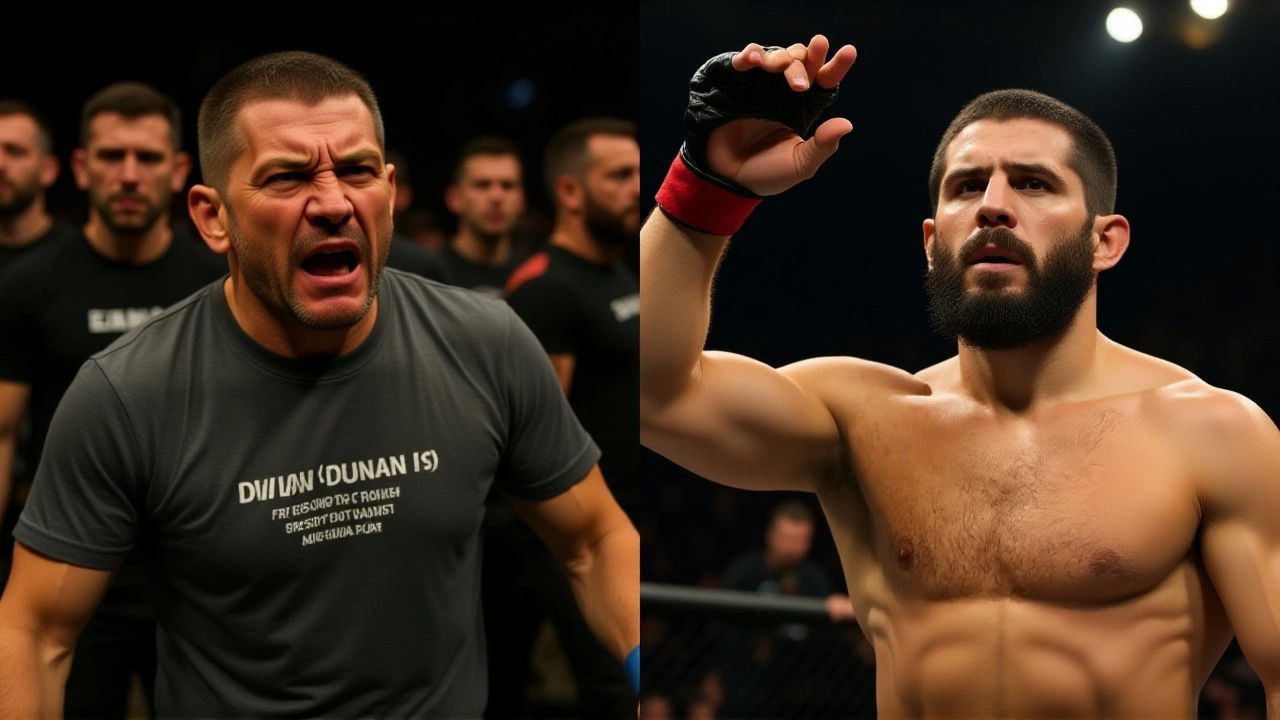
Why This Matters Beyond One Fight
This isn’t just about Dillon Danis. It’s about the UFC’s identity. For years, the organization walked a tightrope between spectacle and sport. Danis embodied the spectacle—loud, brash, unpredictable. White, for all his bluster, has always protected the sport’s credibility. That’s why this ban feels like a turning point. The UFC is no longer just about who wins in the cage. It’s about who you are when the lights are off. And if you bring chaos to the door, you won’t be allowed inside.
Frequently Asked Questions
Why did Dana White issue a lifetime ban instead of a suspension?
White has suspended fighters before, but never issued a permanent ban for an off-mat incident. Danis’s actions weren’t just physical—they were symbolic. He targeted the core of Team Khabib, a group the UFC has carefully cultivated as ambassadors of discipline. White saw this as a threat to the organization’s image and safety protocols, especially after years of Danis’s inflammatory behavior. A suspension wouldn’t have sent a strong enough message.
Can Dillon Danis ever return to UFC events as a fan or guest?
No. The ban is absolute: no access to any UFC-owned venues, no backstage passes, no media credentials, no VIP access. Even if he buys a ticket, security has been instructed to deny entry. Reports suggest the UFC has issued a nationwide alert to all venues hosting UFC events, making Danis’s presence virtually impossible in any official capacity.
What role did Islam Makhachev play in triggering the ban?
Makhachev didn’t cause the brawl, but his public demand for harsher punishment signaled to White that the leadership of Team Khabib felt the initial penalty was inadequate. Given Makhachev’s status as champion and the UFC’s reliance on his global appeal, White likely felt pressure to act decisively—not just to punish Danis, but to reassure a key pillar of the organization’s roster.
Is there any chance the ban could be reversed?
Highly unlikely. White has never reversed a lifetime ban, and Danis has shown no public remorse. Unlike past suspensions tied to rehab or fines, this was a conduct-based expulsion. Unless Danis issues a major public apology and demonstrates long-term behavioral change—something he hasn’t shown in years—the ban is permanent. Even if he changes his stance, the UFC’s legal team would need to formally lift it, and there’s no indication they plan to.
How does this affect the UFC’s relationship with Team Khabib?
It strengthens it. Team Khabib, including Makhachev and coach Javier Mendez, has long been the UFC’s most disciplined, media-savvy faction. By banning Danis, White signaled that the organization backs its top athletes against external harassment. This move may even encourage other fighters from similar backgrounds to speak up, knowing the UFC will now act decisively to protect them.
What does this mean for other non-fighters in MMA, like commentators or influencers?
It’s a wake-up call. Danis was a commentator, not a competitor, yet he was still subject to the UFC’s code of conduct. That means anyone working with or around UFC events—podcasters, analysts, social media personalities—now knows their behavior is policed. The UFC is no longer just regulating fighters. It’s regulating its entire ecosystem. Violate the standards, and you’re out—no second chances.
- Poplular Tags
- Dillon Danis
- UFC
- Dana White
- Las Vegas
- cageside brawl





